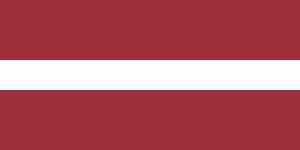Language/Standard-latvian/Vocabulary/Feelings-and-Emotions
Hi Standard Latvian learners! 😊
In this lesson, we will learn the most important Standard Latvian words related to feelings and emotions. We will learn how to express our feelings in Standard Latvian, as well as how to understand the feelings of others. Let's get started!
Introduction
Feelings and emotions are an integral part of our lives. They can be both positive and negative, and they can affect our behavior and our relationships with others. It is important to be able to express our feelings in a way that is both clear and respectful. In this lesson, we will learn how to do just that in Standard Latvian.
Vocabulary
Here is a list of some of the most common Standard Latvian words related to feelings and emotions.
| Standard Latvian | Pronunciation | English Translation |
|---|---|---|
| prieks | /priɛks/ | happiness |
| skumjas | /skumjas/ | sadness |
| bailes | /bailɛs/ | fear |
| dusmas | /dusmas/ | anger |
| miers | /miɛrs/ | peace |
| patikšana | /patikʃana/ | pleasure |
| nepatikšana | /nɛpatikʃana/ | displeasure |
Greetings
Greetings are an important part of any conversation. Here are some of the most common Standard Latvian greetings:
| Standard Latvian | Pronunciation | English Translation |
|---|---|---|
| Sveiki | /svɛiki/ | Hello |
| Labdien | /labdiɛn/ | Good day |
| Labrīt | /labriɛt/ | Good morning |
| Labvakar | /labvakar/ | Good evening |
| Labnakt | /labnakt/ | Good night |
| Paldies | /paldiɛs/ | Thank you |
| Laipni lūgti | /laipni luɣti/ | Welcome |
Questions
Questions are a great way to start a conversation and to show interest in someone else. Here are some of the most common Standard Latvian questions related to feelings and emotions:
| Standard Latvian | Pronunciation | English Translation |
|---|---|---|
| Kā tu jūties? | /kaa tu juutiɛs/ | How are you feeling? |
| Ko tu domā? | /ko tu domaa/ | What do you think? |
| Kas tevi satrauc? | /kas tɛvi satrauc/ | What is bothering you? |
| Kā tu vari palīdzēt? | /kaa tu vari paliidzɛt/ | How can I help? |
| Vai tu esi laimīgs? | /vai tu ɛsi laimiigs/ | Are you happy? |
| Vai tu esi nomākts? | /vai tu ɛsi nomaakts/ | Are you sad? |
Practice
To improve your Standard Latvian Vocabulary, you can also use the Polyglot Club website. Find native speakers and ask them any questions!
➡ If you have any questions, please ask them in the comments section below.
➡ Feel free to edit this wiki page if you think it can be improved. 😎
Related Lessons

